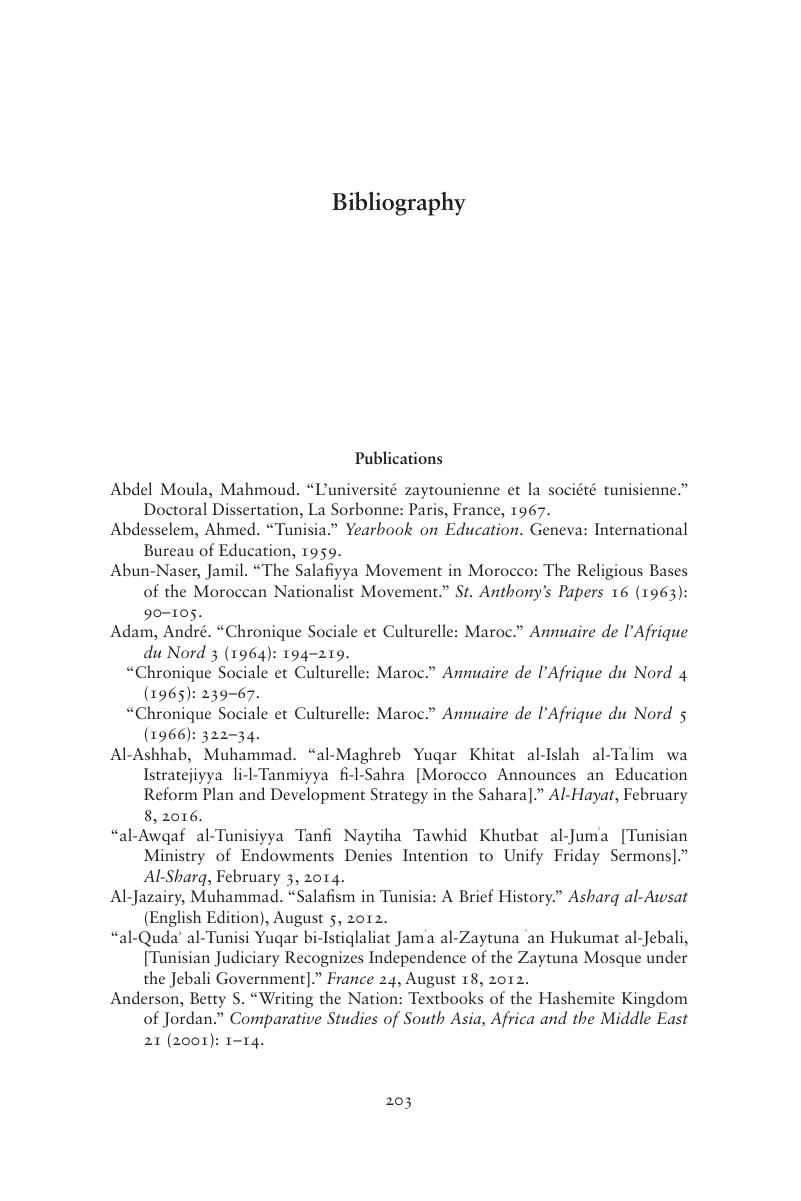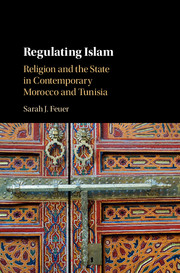Book contents
- Regulating Islam
- Regulating Islam
- Copyright page
- Dedication
- Contents
- Figures
- Tables
- Acknowledgments
- A Note on Conventions
- Introduction
- 1 Toward a Theory of Religious Regulation
- 2 The Moroccan Ingredients of Religious Regulation
- 3 Striking an Identity Bargain in Morocco
- 4 The Tunisian Ingredients of Religious Regulation
- 5 Balancing Muhammad and Montesquieu in Tunisia
- 6 Regulating Islam after the Spring
- Bibliography
- Index
- References
Bibliography
Published online by Cambridge University Press: 08 December 2017
- Regulating Islam
- Regulating Islam
- Copyright page
- Dedication
- Contents
- Figures
- Tables
- Acknowledgments
- A Note on Conventions
- Introduction
- 1 Toward a Theory of Religious Regulation
- 2 The Moroccan Ingredients of Religious Regulation
- 3 Striking an Identity Bargain in Morocco
- 4 The Tunisian Ingredients of Religious Regulation
- 5 Balancing Muhammad and Montesquieu in Tunisia
- 6 Regulating Islam after the Spring
- Bibliography
- Index
- References
Summary

- Type
- Chapter
- Information
- Regulating IslamReligion and the State in Contemporary Morocco and Tunisia, pp. 203 - 220Publisher: Cambridge University PressPrint publication year: 2017



